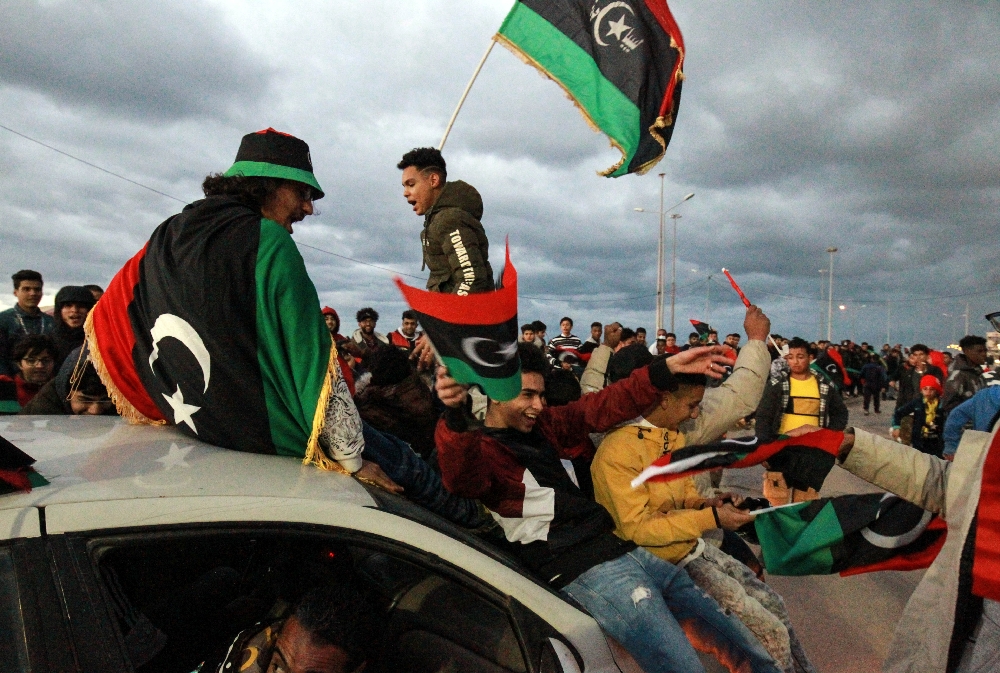Germany will seek to broker lasting peace in Libya on Wednesday, gathering world powers in Berlin to extract a firm promise to withdraw foreign fighters and keep the North African country on track for its December 24 election.
The efforts to end a decade-long spiral of violence in Libya would bring the country’s transitional government, as well as US Secretary of State Antony Blinken, to Berlin for the in-person UN-sponsored talks.
In a phone call with Libyan interim Foreign Minister Najla Mangoush just days ahead of the meeting, Blinken “stressed the United States’ commitment to increasing diplomatic engagement to promote international efforts supporting progress in Libya.”
Like host German Foreign Minister Heiko Maas, Blinken and Mangoush harked back to a first meeting in January 2020 in the German capital where pledges were made which have not been fully implemented.
The presidents of Russia, Turkey and France had then vowed to end foreign meddling in Libya and withdraw foreign militants or troops.
Since those talks, a formal truce was agreed last October that led to the creation of a transitional government under Prime Minister Abdul Hamid Dbeibah and a presidential council headed by Mohammad Younes Menfi which have promised to hold polls.
However, the UN has warned that progress has stalled, notably on a key requisite of the polls — the pullout of all foreign soldiers.
‘Good chance’ for elections
The oil-rich country descended into chaos after dictator Muammar Gaddafi was toppled and killed in a 2011 Nato-backed uprising, resulting in multiple forces vying for power.
In recent years Libya has been split between two rival administrations backed by foreign forces and countless militias.
In October, after Turkey-backed forces of the Government of National Accord (GNA) based in Tripoli routed those of eastern military strongman Khalifa Haftar, the two camps agreed a ceasefire in Geneva.
The security situation in Libya has been slowly improving since.
But the presence of an estimated 20,000 foreign fighters and mercenaries on Libya’s territory is seen as a threat to the UN-backed transition leading to the elections.
Western leaders have repeatedly called on the foreign fighters to depart.
But Russian mercenaries supporting Haftar’s side in the east of the country are still in place.
Turkey meanwhile has troops in Tripoli, which it argues were sent under a bilateral agreement with the government, implying that they are not affected by a request for foreign troops to leave.
Diplomats underlined the delicate balancing act needed to ensure that any withdrawal does not spark new flareups or leaves one side at a disadvantage.
“Foreign forces must leave the country in a gradual and uniform manner, so that there won’t be a sudden military imbalance that could be used by one side for a sudden offensive,” Maas told Die Welt daily in an interview.
Jalel Harchaoui, Global Initiative senior fellow and an expert on Libya, said Wednesday’s talks must go beyond a simple declaration of intent if they are to make a real impact.
“Is there a mechanism for (the fighters) to leave? Are Libyans pushing for them to leave in real life on the ground? No,” he said.
But he voiced hope that the talks would bring tangible help on the upcoming elections.
“Somebody could come up with a good idea of agreeing on a constitutional basis in July and be on course for elections in December,” he said, referring to a key requisite for the polls.
“I think there’s a good chance (for elections by year’s end) and the Berlin process could help.”
Four aid groups working in Libya meanwhile urged world powers to address the humanitarian situation of Libyans.
“The stability of Libya will not come about by just holding elections or withdrawing foreign fighters,” said Dax Roque, the Norwegian Refugee Council’s Country Director in Libya.
“High-level discussions will fall short if they don’t also address the devastation inflicted on peoples’ lives and the very infrastructure on which they depend day to day.”
Source: AFP


